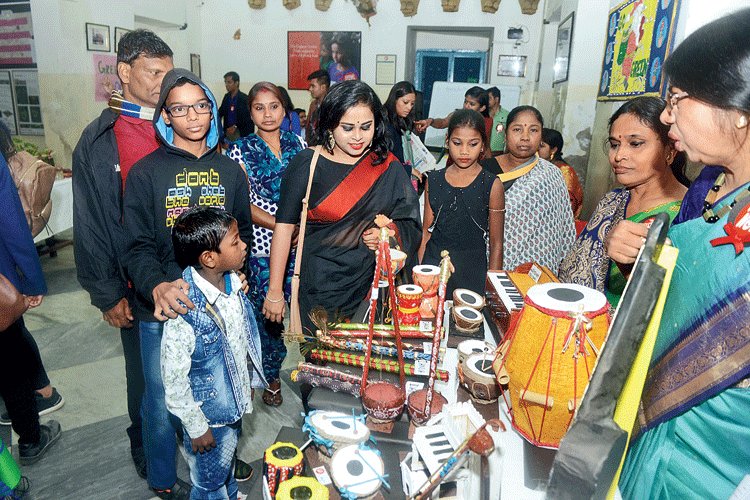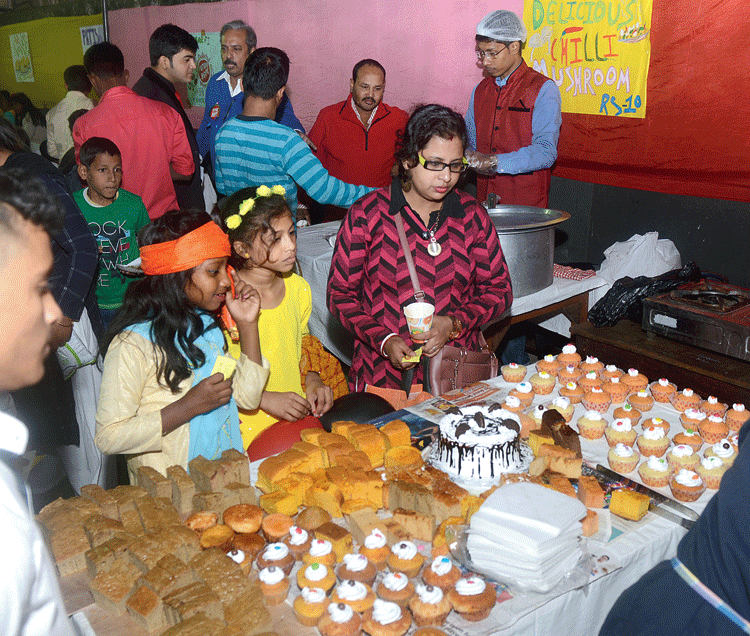Roshan Mistry carries vegetables on his head from Sealdah station to nearby markets. He cannot care less about what he is wearing, all that is on his mind is if he can make a few extra rounds and earn a little more.
Dressed in a clean shirt, sweater and trousers, his face beaming, Mistry turns up at his 12-year-old son’s school to see what the boy has been working on all year.
The annual fair of The Future Hope School, a charitable organisation that provides opportunities to vulnerable children from the streets and slums, is where the students showcase their hard work for parents to see and be proud of.
Mistry’s son studies in Class V and stays in one of the homes run by Future Hope because his parents, who live in a tiled shanty in Sealdah, don’t want their son to “have wrong influences”.
“The environment of the place where we live in is not the best for education and then there are influences that can take a young boy on the wrong path. We don’t want to take a risk. Our elder son was also a student at Future Hope and is now working in Salt Lake,” said Jobeda Bibi, Mistry’s wife.
The parents of most students at Future Hope work as cooks, van rickshaw pullers or housekeeping staff and can barely read or write. All of them enjoyed seeing their children’s craft works and performances at the Future Hope Mela.
The annual fair had on offer calendars and handicraft items, cloth bags, jewellery made with old clothes, Christmas cards and a wide variety of food items such as cakes, soup, momos and sweets.

A handicrafts counter at the Future Hope Mela.
“Parents’ support is crucial to make the children grow up, get educated, learn values. All our children give back to their families. They don’t think that just because they are educated they are a level above. They go back to their families and we encourage that attachment. That’s why the parents are here,” said Sujata Sen, the CEO of Future Hope. “Almost all our children would have gone on to earn a living. So, it’s a sacrifice for the parents to let an earning hand go for the sake of education.”
A Class XI girl was waiting for her mother, a single parent, to show her the handicraft items she had made with other students. “My mother works at a nursing home. Her shift will end at 5pm and then she will go home to Picnic Garden before coming here,” said the 18-year-old.
The visitors included teachers and students of other schools, heads of schools and also social workers.
The theme of this year’s fair and cultural programme was “Save Water Save Environment”.
“We also go to the community and do outreach programmes where we tell them why it is important to plug taps and how it can be done because water constantly flows. When we showcase displays and installations it also helps to drive home a message,” said Samarjit Guha, director, homes.











